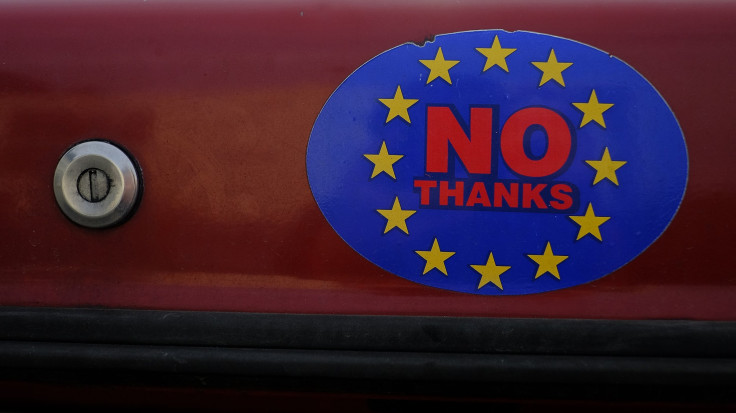Brexit Vote 2016: Amid Tight Polls, Former British Spy Warns Of Security Consequences

The United Kingdom leaving the European Union would expose its citizens more to the threat of terrorism, two former British spy chiefs wrote in an op-ed for the Sunday Times. The warning came from John Sawers, the former leader of the MI6 foreign intelligence service, and Jonathan Evans, the former head of the MI5 domestic spy agency, several weeks ahead of a slated June referendum in Great Britain on whether to stay or leave the EU.
"Counterterrorism is a team game, and the EU is the best framework available — no country can succeed on its own,” they wrote Sunday, adding, “Those who are enemies of democracy would rejoice. In our judgment, there is a real risk that such a detribalization could, in time, lead to the fragmentation of the EU and the return of instability on the continent.”
The arguments concerning a so-called Brexit have focused mainly on the country’s national sovereignty, its ability to protect itself and its economic prowess. Following terror attacks on European capitals such as Paris and Brussels in the past year, security concerns have risen throughout the U.K. — and in London, in particular.

Proponents of leaving the EU argue that the U.K. would have more control over who enters the country if it were no longer in the 28-country bloc. The U.K. has never been part of the Schengen passport-free travel zone that allowed European terrorists in Brussels and Paris to move freely between European countries, however. All people who enter the U.K. must go through a passport check whether they are EU residents or not. Brits who argue that the country would be safer in the EU cite intelligence-sharing between member states as a key element of their domestic strategy.
The margin between the Leave camp and the Remain side has steadily narrowed in the months leading up to the June 23 vote. Around 46 percent of people support the U.K. remaining in the EU, and 43 percent want the country to leave, according to the Financial Times Brexit poll tracker that takes the average of recently available polling data.
© Copyright IBTimes 2024. All rights reserved.












